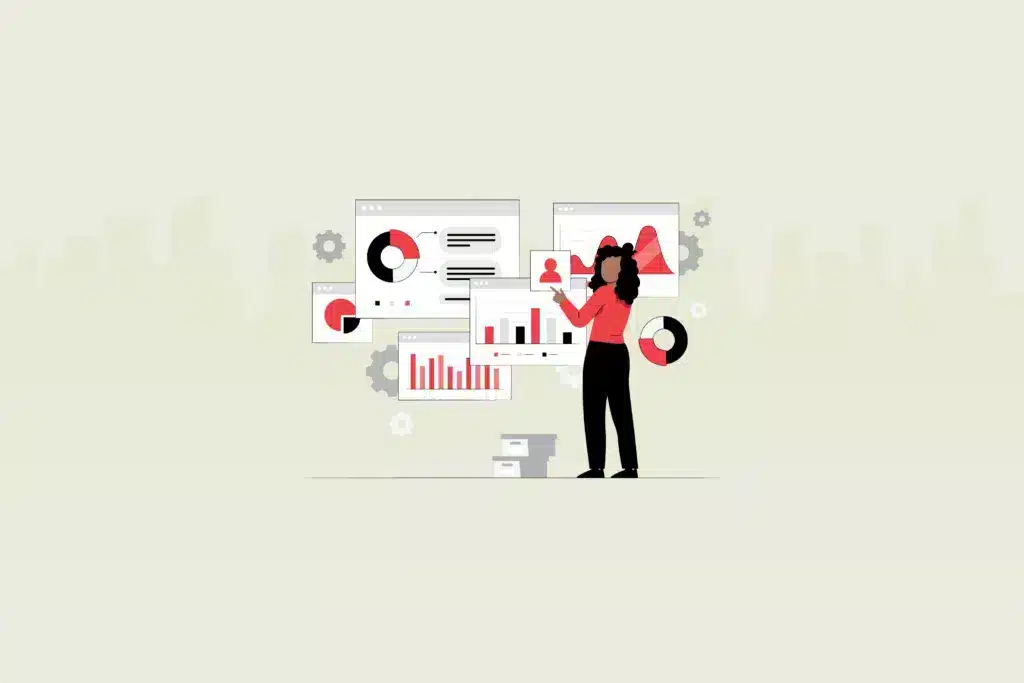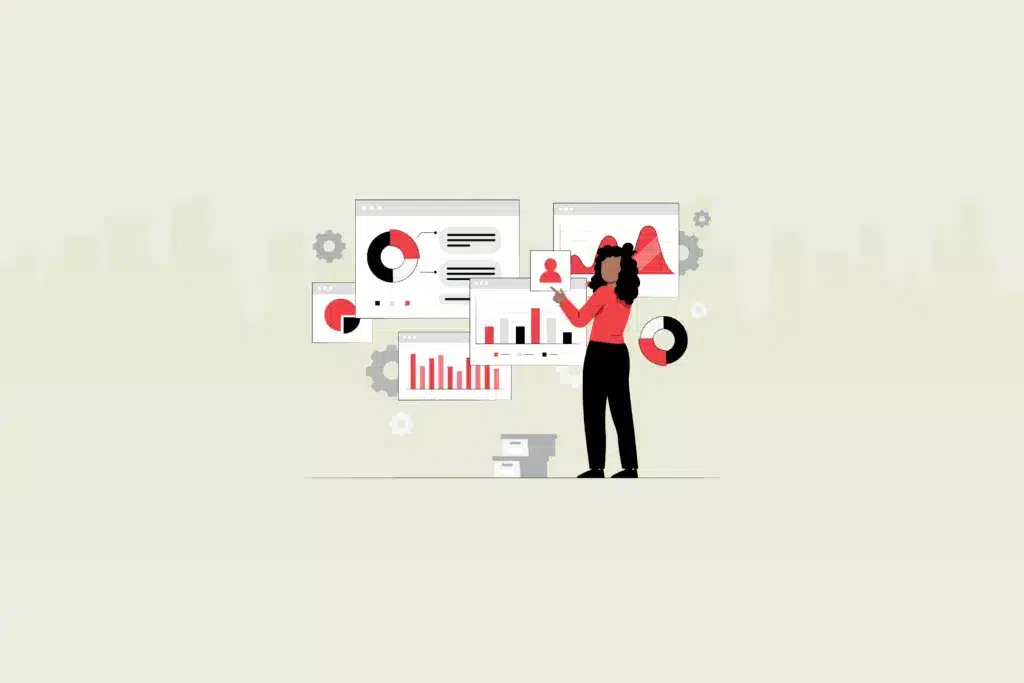The field of technical writing has seen a significant shift in recruiting trends as organizations increasingly recognize the value of effective documentation and communication. With the advent of advanced technologies and rapid digital transformation, the demand for skilled technical writers has witnessed a notable surge in recent years. HR professionals and CXOs play a crucial role in identifying and acquiring top talent in this dynamic landscape.
According to industry analytics, the demand for technical writers has grown by X% over the past two years, reflecting the critical role they play in translating complex technical concepts into clear and user-friendly documentation. In this article, we explore the evolving landscape of technical writing recruitment, shedding light on the key competencies to consider when hiring technical writers and the interview questions that can help assess their suitability for the role.
Here are the top 60 Technical Writer interview questions to ask job applicants:
15 general interview questions for the Technical Writer
- Can you describe your experience in creating technical documentation? What types of documents have you worked on?
- How do you approach gathering information from subject matter experts to create accurate and comprehensive technical content?
- Can you discuss your process for organizing and structuring complex technical information into clear and logical documentation?
- How do you ensure that your technical documentation is easily understandable by non-technical audiences?
- Can you share an example of a challenging technical concept you had to explain and how you made it more accessible in your documentation?
- What tools and technologies are you proficient in when it comes to creating and managing technical content?
- How do you ensure consistency and standardization across various documentation projects?
- Can you discuss your experience with collaborating and working effectively with cross-functional teams, such as developers and engineers?
- How do you handle tight deadlines and manage competing priorities in your work as a Technical Writer?
- Can you describe a situation where you had to adapt your writing style or approach to cater to a specific audience or project requirement?
- How do you handle feedback and revisions to your documentation? Can you provide an example of how you incorporated feedback into your work?
- Can you discuss your familiarity with industry best practices and documentation standards?
- How do you stay updated with the latest trends and technologies in the field of technical writing?
- Can you share any experience you have in conducting usability testing or gathering user feedback to improve technical documentation?
- What are your strategies for maintaining documentation quality and accuracy over time, especially in rapidly evolving technology environments?
5 sample answers to general interview questions for the Technical Writer
- Can you describe your experience in creating technical documentation? What types of documents have you worked on?
Look for: The candidate’s overall experience in technical writing, their ability to handle different types of documents, and their understanding of the document’s purpose.
Example Answer: “In my previous role as a Technical Writer, I have extensive experience creating various types of technical documentation, including user manuals, installation guides, API documentation, and release notes. I understand the importance of tailoring the content and tone to match the intended audience and purpose of each document. For example, I created user-friendly and accessible user manuals for a software product, ensuring step-by-step instructions with screenshots and diagrams to guide users through complex processes.”
- How do you approach gathering information from subject matter experts to create accurate and comprehensive technical content?
Look for: The candidate’s communication and collaboration skills, their ability to extract relevant information from experts, and their attention to detail in capturing accurate technical information.
Example Answer: “When working with subject matter experts, I believe in establishing effective communication channels to gather accurate information. I schedule meetings or interviews to discuss the technical aspects and capture key details. I ask targeted questions, actively listen, and take detailed notes to ensure I have a clear understanding of the subject matter. For instance, in my previous project, I collaborated with engineers to create an in-depth troubleshooting guide for a software product, where I conducted interviews, reviewed code documentation, and tested the software to gather comprehensive information.”
- How do you ensure that your technical documentation is easily understandable by non-technical audiences?
Look for: The candidate’s ability to simplify complex concepts, use plain language, and adapt the content to suit non-technical readers.
Example Answer: “I believe in using a user-centric approach to make technical content accessible to non-technical audiences. I avoid jargon and technical terms, opting for plain language that is easy to comprehend. Additionally, I incorporate visuals, such as diagrams or infographics, to aid understanding. For instance, in my previous role, I created a user guide for a medical device, ensuring that the content was written in simple terms, accompanied by illustrations to help users understand the device’s functionality and operation.”
- How do you handle tight deadlines and manage competing priorities in your work as a Technical Writer?
Look for: The candidate’s ability to work under pressure, prioritize tasks effectively, and maintain quality despite time constraints.
Example Answer: “I thrive in fast-paced environments and have experience working on projects with tight deadlines. To manage competing priorities, I prioritize tasks based on urgency and importance. I break down larger projects into smaller milestones and set realistic timelines. I also communicate proactively with stakeholders, such as project managers, to align expectations. In my previous role, I successfully managed multiple documentation projects simultaneously, meeting all deadlines without compromising the quality of the content.”
- Can you discuss your familiarity with industry best practices and documentation standards?
Look for: The candidate’s awareness of industry standards, their commitment to following best practices, and their ability to adapt to evolving guidelines.
Example Answer: “I am well-versed in industry best practices and documentation standards. I stay updated with the latest trends and guidelines through professional development, attending webinars, and actively participating in technical writing communities. I am familiar with style guides such as the Microsoft Manual of Style and the Chicago Manual of Style. Additionally, I adapt to evolving standards and can quickly learn and implement new documentation tools and technologies. For example, I recently transitioned from using a traditional word processor to a structured authoring tool to enhance content reuse and maintain consistency across multiple documents.”
15 behavioral interview questions for a Technical Writer
- Tell me about a time when you had to collaborate with a cross-functional team to complete a documentation project. How did you ensure effective communication and coordination?
- Describe a situation where you faced challenges in gathering information from subject matter experts. How did you overcome those challenges to produce accurate and comprehensive technical content?
- Can you share an example of a time when you had to explain a complex technical concept to a non-technical audience? How did you make it understandable and engaging for them?
- Tell me about a time when you received feedback or criticism on your documentation. How did you handle it, and what steps did you take to incorporate the feedback into your work?
- Describe a situation where you had to manage competing priorities and tight deadlines for multiple documentation projects. How did you prioritize and organize your work to meet all the requirements?
- Can you discuss a time when you encountered a major discrepancy or error in technical documentation? How did you identify and resolve the issue to maintain accuracy and quality?
- Tell me about a project where you had to work independently and take ownership of the entire documentation process. How did you ensure consistency and adhere to documentation standards?
- Describe a time when you had to adapt your writing style or approach to cater to a specific target audience or project requirement. How did you tailor the content to meet their needs effectively?
- Can you share an example of a time when you had to work with limited resources or information to create technical documentation? How did you handle the situation and ensure the content was still valuable?
- Tell me about a time when you faced resistance or pushback from stakeholders regarding your documentation recommendations. How did you handle the situation and gain buy-in for your approach?
- Describe a situation where you had to conduct usability testing or gather user feedback to improve technical documentation. How did you incorporate the feedback into the final content?
- Can you share an example of a time when you had to manage a documentation project with evolving requirements or frequent changes? How did you adapt to the changes and maintain documentation integrity?
- Tell me about a time when you had to work with remote or distributed teams to create technical documentation. How did you ensure effective collaboration and overcome communication challenges?
- Describe a situation where you identified an opportunity to streamline or improve existing documentation processes. How did you implement the changes, and what impact did it have on the overall documentation workflow?
- Can you share an example of a time when you had to learn and implement new documentation tools or technologies to enhance your work? How did you approach the learning process and adapt to the changes?
5 sample answers to behavioral interview questions for the Technical Writer
- Tell me about a time when you had to collaborate with a cross-functional team to complete a documentation project. How did you ensure effective communication and coordination?
Look for: The candidate’s ability to collaborate with diverse teams, their communication skills, and their approach to ensuring effective coordination and information sharing.
Example Answer: “In my previous role, I worked on a documentation project that involved collaborating with developers, product managers, and quality assurance teams. To ensure effective communication and coordination, I scheduled regular meetings to discuss project milestones, progress, and any potential roadblocks. I established a shared documentation platform where team members could provide feedback and suggestions in real-time. Additionally, I maintained open channels of communication through emails and chat platforms, promptly addressing any queries or concerns. By fostering transparent and collaborative communication, we successfully completed the project within the designated timeline.”
- Can you share an example of a time when you faced challenges in gathering information from subject matter experts? How did you overcome those challenges to produce accurate and comprehensive technical content?
Look for: The candidate’s problem-solving skills, persistence in seeking information, and their ability to maintain accuracy in documentation.
Example Answer: “In a previous project, I faced challenges in obtaining information from busy subject matter experts due to their tight schedules. To overcome this, I employed a proactive approach by reaching out to them well in advance, explaining the purpose and importance of the documentation. I offered flexibility in terms of interview timings and location to accommodate their availability. Additionally, I prepared specific questions to extract the required technical details efficiently. By demonstrating patience, perseverance, and a genuine interest in their expertise, I was able to establish a rapport with the subject matter experts and gather accurate and comprehensive information for the documentation.”
- Tell me about a situation where you had to explain a complex technical concept to a non-technical audience. How did you make it understandable and engaging for them?
Look for: The candidate’s ability to simplify complex concepts, use effective communication techniques, and engage non-technical audiences.
Example Answer: “In my previous role, I had to explain a complex data analytics algorithm to marketing professionals who had limited technical knowledge. To make it understandable and engaging, I employed various strategies. First, I used analogies and real-world examples to relate the technical concepts to familiar scenarios. I avoided technical jargon and explained the key concepts in simple language. Additionally, I created visual aids such as infographics and flowcharts to present the information visually. Finally, I encouraged interactive discussions, welcomed questions, and provided additional resources for further self-learning. By combining these techniques, I successfully conveyed the complex technical concept in a way that resonated with the non-technical audience.”
- Tell me about a time when you received feedback or criticism on your documentation. How did you handle it, and what steps did you take to incorporate the feedback into your work?
Look for: The candidate’s ability to handle feedback constructively, their willingness to learn and improve, and their attention to detail in revising their work.
Example Answer: “In a previous project, I received feedback from stakeholders regarding the organization and clarity of my documentation. Instead of taking it personally, I saw it as an opportunity for improvement. I carefully reviewed the feedback and identified specific areas for enhancement. I conducted a thorough review of the document, focusing on improving the structure, incorporating more user-friendly language, and ensuring consistency throughout. I also sought clarification from the stakeholders to fully understand their expectations. After incorporating the feedback, I shared the revised version for their review, ensuring that their concerns were addressed. By embracing feedback and taking proactive steps to improve, I enhanced the quality and effectiveness of the documentation.”
- Can you share an example of a time when you had to manage competing priorities and tight deadlines for multiple documentation projects? How did you prioritize and organize your work to meet all the requirements?
Look for: The candidate’s time management skills, ability to prioritize tasks, and capacity to work efficiently under pressure.
Example Answer: “In a previous role, I faced a situation where I had to manage multiple documentation projects with overlapping deadlines. To tackle this challenge, I started by assessing the scope and requirements of each project. I prioritized the projects based on urgency, importance, and dependencies. I created a detailed project plan with milestones, allocated specific time blocks for each project, and set realistic expectations with stakeholders. I used productivity tools and techniques such as time blocking and task lists to stay organized and focused. By adopting effective time management strategies and staying committed to meeting deadlines, I successfully delivered high-quality documentation for all the projects.”
15 personality interview questions for the Technical Writer
- How do you handle constructive criticism or feedback on your work?
- Can you describe a situation where you had to work independently and take ownership of a documentation project? How did you stay motivated and organized?
- How do you approach working with colleagues who have different communication styles or preferences?
- Tell me about a time when you had to deal with a challenging stakeholder or client. How did you manage the situation and maintain a positive working relationship?
- Can you discuss a time when you had to adapt quickly to changes in project requirements or priorities? How did you handle the situation and ensure successful project completion?
- How do you stay updated with the latest industry trends and best practices in technical writing?
- Can you describe a situation where you had to juggle multiple tasks or projects simultaneously? How did you prioritize and manage your workload?
- How do you approach problem-solving when faced with a complex technical issue in your documentation? Can you provide an example?
- Tell me about a time when you had to present technical information or deliver a training session to a group of individuals. How did you engage and communicate effectively with the audience?
- How do you handle tight deadlines and work under pressure? Can you provide an example of a time when you successfully managed such a situation?
- Can you describe a time when you had to deal with conflicting feedback or input from different stakeholders? How did you navigate through the differences and reach a resolution?
- How do you handle ambiguity or incomplete information when creating technical documentation? Can you share an example of how you managed such a situation?
- Can you discuss a situation where you had to collaborate with a challenging team member or resolve a conflict within a team? How did you approach the situation and ensure productive collaboration?
- How do you manage your own professional development as a Technical Writer? Can you provide an example of how you have pursued growth and learning in your career?
- Tell me about a time when you had to simplify technical jargon or complex concepts for a specific audience. How did you approach it, and what strategies did you use to ensure effective communication?
5 sample answers to personality interview questions for Technical Writer
- How do you handle constructive criticism or feedback on your work?
Look for: The candidate’s ability to accept feedback positively, their openness to learning and growth, and their ability to incorporate feedback into their work.
Example Answer: “I value constructive criticism as an opportunity for growth and improvement. When receiving feedback on my work, I actively listen and seek to understand the specific areas that need improvement. I remain open-minded and avoid taking feedback personally. I appreciate different perspectives and use feedback as a guide to enhance my writing skills and meet the expectations of stakeholders. For example, in a recent project, I received feedback on the clarity of my instructions. I carefully analyzed the feedback, identified areas that needed improvement, and reworked the instructions to make them more precise and user-friendly. By embracing feedback, I strive to continuously enhance my documentation quality.”
- Can you describe a situation where you had to work independently and take ownership of a documentation project? How did you stay motivated and organized?
Look for: The candidate’s ability to work autonomously, their self-motivation, and their organizational skills.
Example Answer: “In my previous role, I had the opportunity to work independently on a major documentation project. To ensure its success, I created a detailed project plan, setting milestones and deadlines to keep myself on track. I broke the project into smaller tasks and created a work schedule to manage my time effectively. To stay motivated, I set personal goals and celebrated small milestones along the way. I also made sure to maintain open lines of communication with stakeholders, seeking their input and addressing any concerns promptly. By taking ownership of the project, I was able to stay motivated, and organized, and ultimately deliver a high-quality documentation deliverable.”
- How do you approach working with colleagues who have different communication styles or preferences?
Look for: The candidate’s adaptability and interpersonal skills, ability to collaborate effectively with diverse colleagues, and willingness to find common ground.
Example Answer: “I recognize that effective collaboration requires understanding and accommodating different communication styles and preferences. When working with colleagues who have different styles, I strive to adapt my communication approach to meet their needs. I listen actively to understand their preferences and adapt my communication style accordingly. For example, if a colleague prefers written communication, I ensure that I provide clear and concise written documentation. If someone prefers verbal discussions, I schedule meetings to address their questions or concerns. By being flexible and adaptable in my communication, I aim to foster strong working relationships and promote effective collaboration within the team.”
- Tell me about a time when you had to deal with a challenging stakeholder or client. How did you manage the situation and maintain a positive working relationship?
Look for: The candidate’s conflict resolution skills, their ability to handle difficult situations professionally, and their commitment to maintaining positive relationships.
Example Answer: “In a previous project, I encountered a challenging stakeholder who had strong opinions and frequently disagreed with the approach I proposed in the documentation. To manage the situation, I actively listened to their concerns and opinions, seeking to understand their underlying motivations. I maintained a calm and professional demeanor, refraining from becoming defensive. I engaged in open and honest discussions, offering alternative solutions and explaining the rationale behind my approach. I also emphasized the shared goal of delivering accurate and user-friendly documentation. By addressing their concerns respectfully and finding common ground, I was able to maintain a positive working relationship and achieve successful project outcomes.”
- How do you handle tight deadlines and work under pressure? Can you provide an example of a time when you successfully managed such a situation?
Look for: The candidate’s ability to handle stress and meet deadlines, their time management skills, and their approach to managing priorities.
Example Answer: “I thrive in fast-paced environments and have experience successfully managing tight deadlines. When faced with such situations, I prioritize tasks based on urgency and importance. I break down complex projects into manageable steps, creating a timeline to ensure I stay on track. I remain focused, maintain clear communication with stakeholders, and proactively address any potential roadblocks. For instance, in a recent project, I had to deliver a user manual within a short timeframe. By effectively managing my time, collaborating closely with subject matter experts, and working diligently, I was able to meet the deadline without compromising the quality of the documentation.”
When should you use skill assessments in your hiring process for Technical Writer?
Skill assessments can be a valuable component of the hiring process for Technical Writers. They provide an objective and standardized way to evaluate candidates’ proficiency in specific skills required for the role. By incorporating assessments, employers can gain deeper insights into a candidate’s abilities, identify their strengths and areas for development, and make more informed hiring decisions.
Skill assessments are important because they go beyond resumes and interviews, allowing employers to assess candidates’ practical skills and their ability to apply their knowledge in real-world scenarios. Technical Writing requires a combination of writing proficiency, attention to detail, organizational skills, and the ability to comprehend complex technical information. Assessments provide a way to directly evaluate these critical competencies, ensuring that candidates possess the necessary skills to excel in the role.
Several types of assessments can be used to evaluate the skills of Technical Writers. These may include writing assessments, where candidates are given a prompt or a sample task to complete within a given timeframe, allowing employers to evaluate their writing style, clarity, grammar, and ability to convey technical information effectively. Additionally, editing assessments can be used to assess a candidate’s proofreading and editing skills, as well as their attention to detail. Finally, software proficiency assessments can help evaluate candidates’ familiarity with technical writing tools such as documentation platforms, content management systems, or authoring software.
By incorporating skill assessments into the hiring process for Technical Writers, employers can ensure they are selecting candidates who possess the necessary skills to succeed in the role, ultimately contributing to the overall effectiveness and quality of the documentation produced by the organization.
Use our interview questions and skill tests to hire a talented Technical Writer
Unlock the potential of your hiring process with Testlify’s comprehensive skill assessments and interview questions specifically designed for Technical Writer.
Our extensive test library offers a wide range of assessments, including cognitive function, personality, situational judgment, programming, and more. By leveraging these assessments, you can objectively evaluate candidates’ abilities, ensuring you shortlist the most talented individuals efficiently.
To further enhance your hiring process, we invite you to book a free 30-minute live demo. Our expert team will guide you through the platform, showcasing relevant skill tests tailored to your hiring needs. With our support, you can streamline candidate selection, saving valuable time and resources.
Ready to find the perfect fit for your Technical Writer role? Testlify provides the tools you need to make informed hiring decisions. Explore our skill assessments and interview questions today to uncover exceptional talent for your team.








